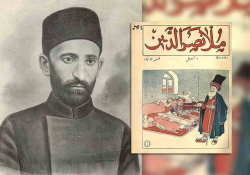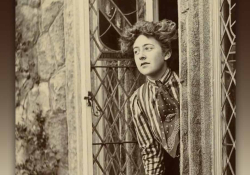Like Rain That Falls: 10 Truisms of Translation
October 28, 2014
translated by
George Henson

Photo by Marsha Brockman/Flickr
- To say literary translation is to commit a pleonasm. All translation is intrinsically literary, in the same way every text is, at least for one of the three legs that make up the textual event: poetics, aesthetics, and catharsis. A text that has been produced by no one, that is received by no one, and that does not communicate anything simply is not a text.
- There is no translation without an author, in the same way that there can be no text without someone or something having produced it. Not even a machine—virtual, analog, or mechanical (e.g., its creator or operator)—is exempt from authorial rights and responsibilities.
- The communication of all translation within the hypermarketist system generates a surplus value that is not received by the author(s), as if the author(s) ceased to exist postpoiesis or, even, as if translation did not occur in a spatiotemporal frame, therefore, lacked the practical effects of authorship.
- The renunciation of authorship of a translation is, then, an act of economic sleight of hand, ventriloquism, or ideological alienation. It is not only not legal; it is ontologically impossible. Thus, the text seems to lack an author but, in fact, will never cease to have one.
- All translation is an act of bloodthirsty violence. The paradigm of the translator is Macbeth, who after his victorious rampage lives with bloodstained hands. Not even his alter ego, Pierre Menard, was able to emerge without blood on his hands. Ergo, necessity frees the translator from guilt but not from the responsibility for the blood.
- All translation implies a cultural and, therefore, a political will. Similarly, the publication, distribution, and sale of any translation, a responsibility that should be assumed with all its consequences by those who, upon undertaking them, retain the surplus value that these activities generate.
- Translation fixes the language of its sphere of cultural influence to a greater extent than the original production of that same language. The linguistic responsibility of whoever translates and whoever disseminates that translation is, therefore, crucial and absolute. In this area, to play dumb is to have a head literally made out of wood.
- As long as translation criticism is being practiced by someone other than translators themselves—not even translation theorists—it will be left to the whims of the worst kinds of ignorance, by those who feel authorized to practice it freely and with impunity. The lack of rigorous and honest criticism is a breeding ground for junk food.
- Translation is a singular profession that is learned through constant study and practice; therefore, no degree can guarantee a translator’s excellence, since translating is not getting it right but rather getting it wrong with artistry and craftsmanship. It would never occur to the person who becomes sick at the sight of an amputated limb to buy an apron or leaf through saw catalogs.
- The translator need not worry about becoming visible—instead, if anything, worthy of a modest amount of respect. A translator is neither a hero nor a martyr; he is merely the author of a translation. And that is not prize-worthy.
Translation from the Spanish
By George Henson
This piece originally appeared on the El Trujamán blog of the Cervantes Institute and has reappeared on several websites throughout the Spanish-speaking world. Ehrenhaus reviewed Henson’s translation, made a few minor suggestions, and said, “It’s perfect just the way it is, that is to say, imperfect.”














